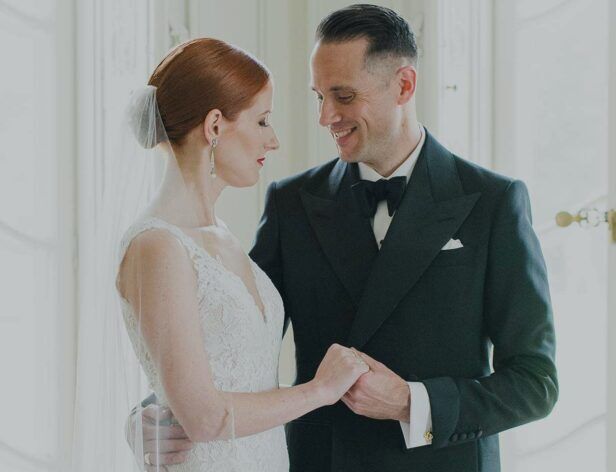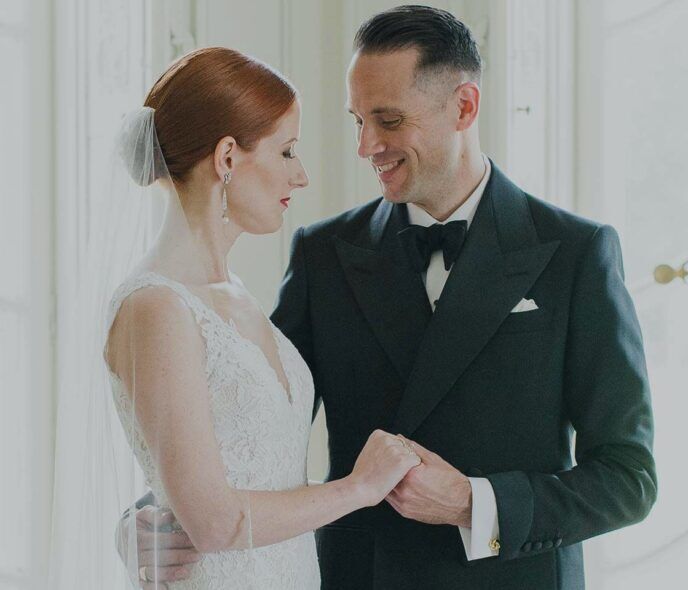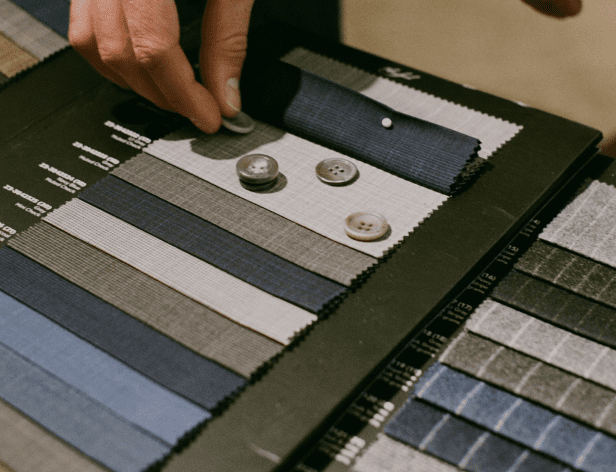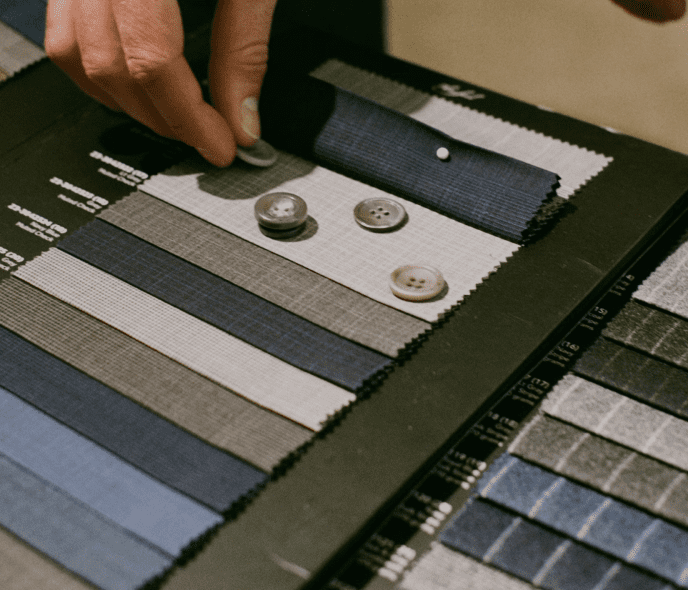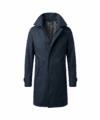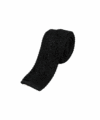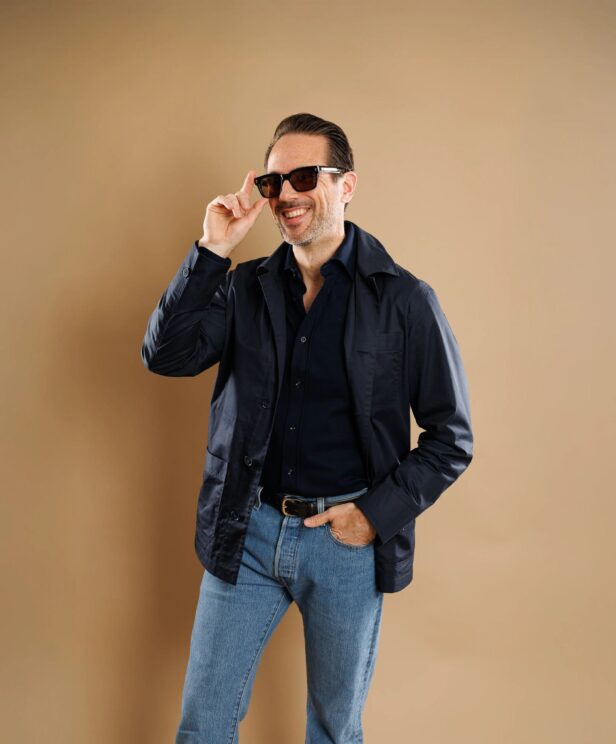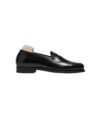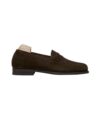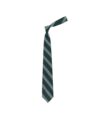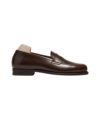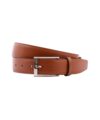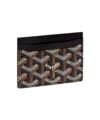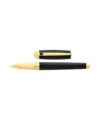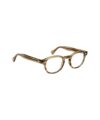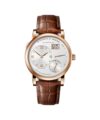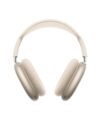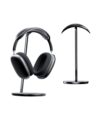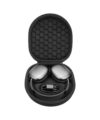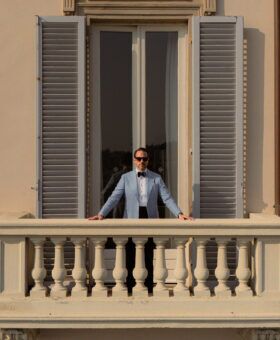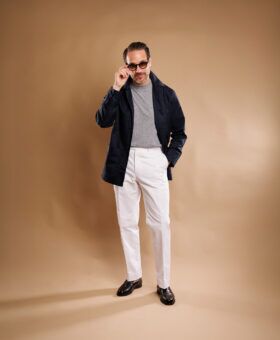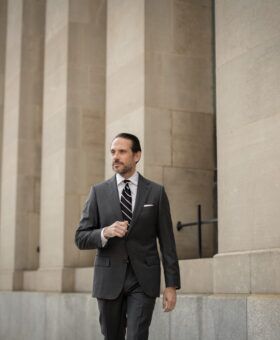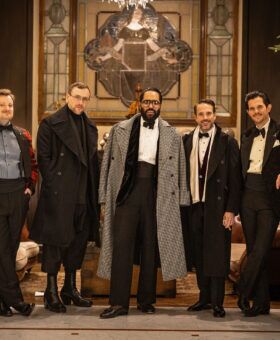Share
What is a brogue shoe?
It never ceases to amaze me how many pieces of classic menswear began as rugged, workingman’s attire only to evolve over the years into staples of the classy, refined gentleman. The brogue shoe is yet another perfect example.
First, what exactly is a brogue, or brogueing? 90-percent of the time, a brogue shoe refers to a wingtip shoe. But it’s not the stitching that makes it brogue. Rather, it’s the perforations that have come to be associated with wingtip stitching in particular.
That said, those perforations can also be found on plain toe shoes, cap toe shoes, loafers, boots, you name it. Originally, the perforations went all the way through the shoe, but now usually only penetrate the outer layer of leather.
And that clues us in on the brogue’s working past as the all-the-way-through perforations used to serve a very practical purpose.
Brogues were originally designed for, and worn by, peat farmers in the UK who worked in swampy, boggy fields. When wearing traditional shoes or boots, farmers found themselves constantly needing to take off their shoes and drain them of water.
Brogueing became a simple solution to the problem.
Punching holes through the leather allowed the water to drain out while the shoes were still being worn. Sure, you wouldn’t have dry feet, but at least it wouldn’t be like standing in a bucket of water all day long.
It’s not completely clear how the transition came to be, but over time brogues stopped being a shoe of the common worker and were incorporated into dressier and more formal attire. Silhouettes became sleeker, leathers became a bit more premium and eventually those perforations became purely aesthetic as opposed to functional.
While brogue shoes are now firmly thought of as dress shoes, the added detail still skews a shoe a bit more to the casual end of the spectrum. It’s far more appropriate to wear a brogued wingtip derby with a pair of jeans than, say, a whole-cut oxford. Similarly, I’d generally avoid wearing brogues with a tuxedo and instead opt for something cleaner and sleeker.
Of course, the formality can be tempered by the amount of brogueing on the shoe. As mentioned, sometimes even a whole-cut shoe will have a small amount of decorative brogueing on the toe. And that’s still pretty darn dressy.
In between, you have a quarter brogue, which is a cap-toe shoe with perforations just along the cap seam itself. Half-brogues are just a bit more ornate, with additional brogueing on the toe as well as the cap seam.
The most common is the full brogue, which is a wingtip with perforations along the all seams as well as the toe. And then there’s the longwing brogue, which if you look at the photo above should be pretty self-explanatory.
Add in twists like suede leather, derby vs. oxford closures, monk straps, or even a boot silhouette, and you can find a brogue to fit pretty much any occasion with a touch of old-school English charm!
Thanks, as always, for reading.
Stylishly Yours,
Adam Lehman
He Spoke Style
Photography by Rob McIver Photo; Special thanks to Samuel Parker Clothier.


